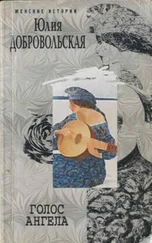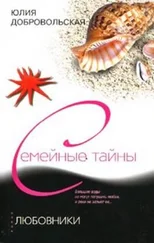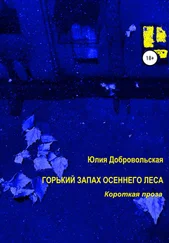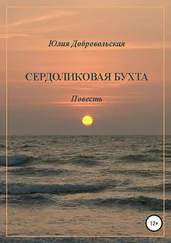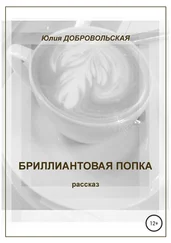Julia Dobrovolskaya
The Lovers
© 2017 by Julia Dobrovolskaya
All Rights Reserved
Translated by Sofia Gutkin © 2017
This English-language translation was funded by generous contributions from:
David G. Brown
Fred Clipton
Chris Florio
Becky Gentry
Lisa Harvey
Jim Kostopoulos
Sari Lewis
Vicki McDermitt
Mike Ricker
Tim Schumacher
Jake Valentine
Thank you to all!
Dina Turbina stepped out of the university doors into an overcast day.
One could say that the colors surrounding her, washed out by the fog and the feeble rains of the past few days, and inspiring autumnal sadness, did not match her mood at all, which was upbeat and focused, as if ready to break out into song. But Dina didn’t believe in such a thing as bad or good weather. She accepted without any judgment both the bleak days with their faded colors, and the bright sun in a blue sky, without classifying them as “good” and “bad,” or “sad” and “happy.” For Dina, the world was always wonderful and surprising, and each kind of weather had its own charm. Certainly, her mood was not always so uplifted, sometimes it went downwards, but the weather had absolutely nothing to do with it. Dina was more likely to make her surroundings match her mood!
She put on her sunglasses, which transformed everything around her, making the world appear bright and gold, like the seaside in the peak of summer.
Dina loved the sea, but she still had two whole months left to wait. Two months of internship, which was almost a real job, almost aligning with her specialization, for which she would be paid almost a real salary, one that Dina was planning to spend on a trip to the seaside.
Meanwhile, it was the very start of summer. The beginning of a typical weekday. Yet her work was already done for today, and for next week too. She had passed the last, most difficult exam for this semester, for the most important subject for her future profession. She passed under the strictest and most demanding teacher. The most attractive teacher at their university. The most attractive man that Dina had ever met so far. This was a common opinion, with every female student secretly hoping for more than just pedagogical favors from Konstantin Konstantinovich Kolotozashvili. In fact, plenty of cute girls got some. That’s what people said at the university.
But that was precisely what Dina did not want to think about.
Better to think of the sea. She was hoping to visit her favorite Feodosia again this summer, once she had finished her internship and saved up enough money. Even her mom had promised to help. Awesome! This was so awesome!
Her near future definitely looked bright and alluring. Yet why could she not let go of the present?
* * *
Dina took a question sheet from the table.
The question sheet was not too hard, well, as much as it could be for a very difficult subject. Dina was not scared of any of the topics since she had studied thoroughly and was confident in her abilities. She always completed all the exercises on time and started working on them straight away, not leaving them until the last day or week. She never skipped a class, and she would attend university even if she did not feel well so that she would not miss something that was not written in the textbooks, something that only a master of their craft could tell her. The very fact of her attention to these significant, or even insignificant, details of the studied subjects, tended to flatter the lecturers and garner her extra affection. The teachers liked Dina. Not only for her responsible approach to study and solid knowledge, but also for her calm and friendly nature.
Dina took the question sheet and walked towards the last table.
The students attending this exam used only the last tables. Everyone knew that this was the way Konstantin Konstantinovich Kolotozashvili liked it. Firstly, the student answering thus didn’t unintentionally disrupt the person preparing for the exam, and secondly, this way the teacher could more easily spot the ones using cheat sheets.
Although he insisted himself: “You must write cheat sheets!”
Yes, that’s exactly what he had said. “I strongly recommend that you write cheat sheets when preparing for the exam. But woe to the person, who brings them to the exam!”
“So why should we write cheat sheets,” the students would ask, “if we cannot use them?”
“Because,” Konstantin Konstantinovich had said, “a properly prepared cheat sheet is a concentrate, an essence…” He loved to wrap even everyday concepts in terms related to his subject, “an essence that is easier to remember, and which requires only the addition of a verbal broth to become the solid information, from which it was made.”
That was why Dina wrote cheat sheets, and not just for that subject. But she never took them to a test or an exam.
Afterwards, her cheat sheets, written in her clear small handwriting, were hot property amongst her classmates. They were even handed down like heirlooms to the younger students, for nobody else could create concentrates of such quality. Dina never could explain to them that the only useful cheat sheets were the ones you had written yourself.
Dina took the question sheet and walked towards the last table.
One of the three topics was one that Kokon (what the students called Konstantin Konstantinovich behind his back) was failing all the students on.
Dina articulated her answers quite quickly, and remembered everything that she knew from the supplementary material. The material was not compulsory but it gave the answer elegance and utter completeness, and elevated the person answering to the status of the initiated.
It would be a lie to say that Dina was not nervous. Of course, she was nervous, like any normal student. The difference was that she could pull herself together internally and forbid herself from wallowing in any destructive emotions and thoughts. It was as if someone inside her, someone invisible in everyday life, suddenly came alive and told her, “If you fear failure, it will immediately appear.” Even when she was getting sick, Dina heard the voice: “You cannot fear illness or it will be stuck inside you for a long time, simply accept it and deal with it like an opponent, eye to eye like an equal.” Dina believed this Inner Voice ever since the time that she had ignored it, and was immediately beset by a problem which the Inner Voice had persistently warned her about. She had gotten off easy that time…
Dina was eight years old. One winter day, after hours of sledding down hills with friends on the shore of a frozen river, she was returning home during dusk, along a road cleared by the bulldozer, between the town and the Selkhoz. That was what they called the village across the river where the town’s agricultural sector was located, with two-story white houses, stables, cowsheds, vegetable silos, and as it seemed to Dina back then, endless fields.
It was not far to the first town houses, and Dina could already see the lamp shades glowing in the windows and the potted plants standing on the windowsills.
Suddenly, a pack of dogs appeared from around the corner in front of her. There were about ten of them. They walked towards her in a lazy, sated jog, occasionally sniffing the snow alongside the road and playfully snapping at each other. They were returning from the various city rubbish tips – school, kindergarten and hospital tips – where they could always find plenty of after-dinner leftovers.
Читать дальше

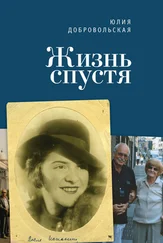
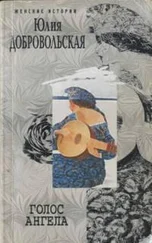
![Юлия Добровольская - Голос ангела [cборник]](/books/78768/yuliya-dobrovolskaya-golos-angela-cbornik-thumb.webp)
